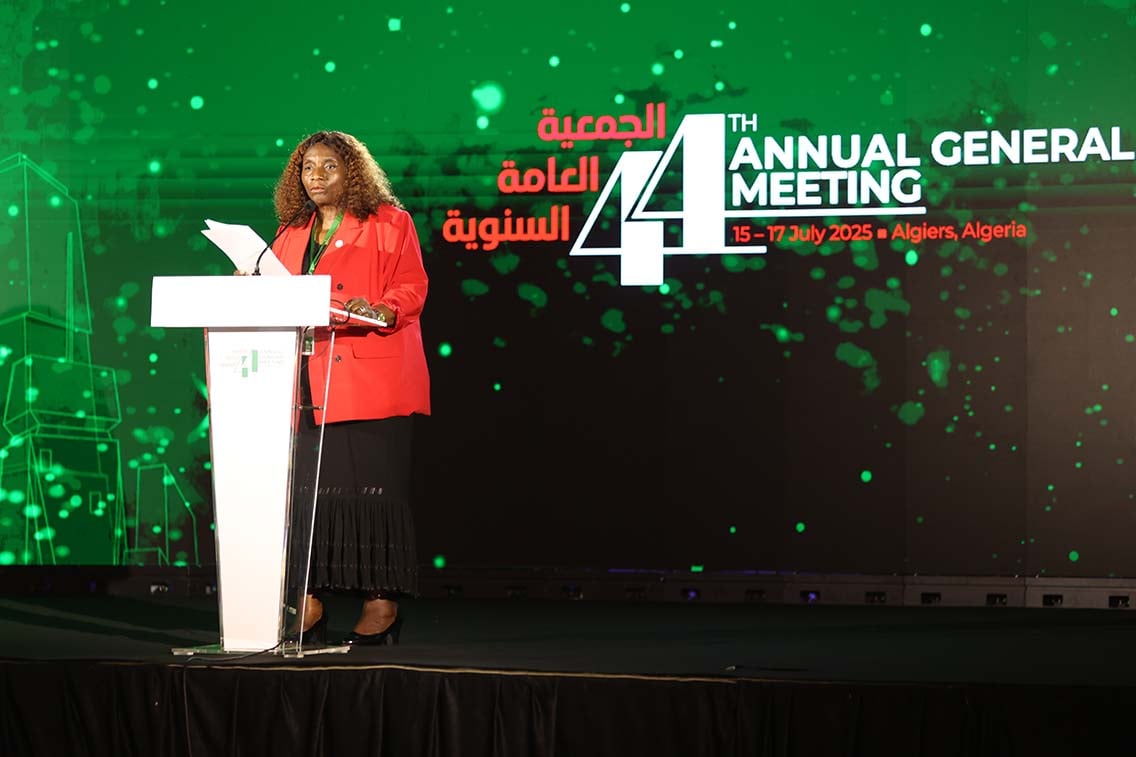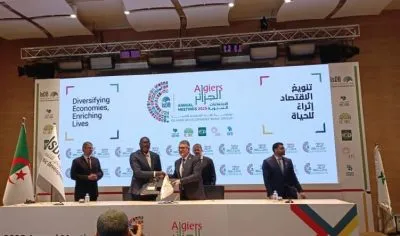This article was produced with the support of Shelter Afrique Development Bank
Shelter Afrique Development Bank’s shareholders approved the financial results presented by the Chair of the Board of Directors, Dr. Patience Chii Akporji, during the 44th Annual General Meeting of the bank in Algiers.
The result indicates remarkable resilience in the face of regional monetary turmoil, with the pan-African bank, which specialises in housing finance, turning an economic challenge into an opportunity.
While the drastic 70.7% depreciation of the Nigerian naira could have weakened the institution, Shelter Afrique rose above the headwinds to post an overall result of $1.7m as at 31 December 2024, a spectacular increase of $1.673m compared to the previous year.
This counterintuitive performance can be explained by several factors. The devaluation of the naira paradoxically benefited the bank by reducing its interest expenses on bonds denominated in that currency.
At the same time, the improvement in the net interest margin, which improved from 20% to 7%, was the main driver of this growth. Valuation gains on five equity investments also boosted the institution’s overall profitability.
However, the Nigerian currency crisis has not spared all indicators. Interest income, although stable in local currency, contracted when converted into dollars. The impact on the bank’s regulatory capital position remains significant, requiring increased vigilance in managing foreign exchange risks.
Operating expenses trended upwards, reflecting the institution’s strategic investments. The increase was driven primarily by recruitment for key positions, legal fees, and building maintenance expenses account for this increase. The impairment charges, however, remained stable, while other impairment losses decreased due to favourable fair value adjustments.
A financial structure that can withstand shocks
The balance sheet analysis reveals a financially robust institution despite the unfavourable environment. While the depreciation of the naira led to a decline in total assets expressed in dollars, the bank maintains an exemplary liquidity position. With a liquidity ratio of 22%, Shelter Afrique comfortably exceeds the regulatory minimum of 15%, providing a comfortable safety margin.
Net outstanding loans for the period declined slightly due to provisions and the impact of exchange rate fluctuations. Debt decreased thanks to coupon payments on naira-denominated bonds and their depreciation in dollars, while equity increased, supported by positive results and new capital subscriptions.
In a clear demonstration of increased operational efficiency, the cost/income ratio improved dramatically, falling from 70% in 2023 to 50% in 2024.
The debt-to-equity ratio declined too, benefiting from the bond repayment and devaluation. The solvency ratio of 53.9%, more than double the target of 25%, attests to the bank’s ability to finance new large-scale projects.
The meeting also approved the continuation of the transformation initiated under the 2023-2027 strategic plan. This roadmap focuses on strengthening the policy framework, particularly in the area of credit. The Board of Directors approved a capital restructuring in line with Resolution 15, adopted by shareholders in Kigali in 2019, with effective implementation commencing in 2025.
Shelter Afrique is capitalising on two consecutive years of credit rating improvements, opening up access to more advantageous financing. The recently created advisory arm is already generating profits, with the bank preparing to launch the Finance Management Group product to mobilise concessional funds and support the growth of its activities.
These positive results come as the pan-African institution continues its transformation into a development bank, strengthening its mandate to finance affordable housing across the continent. The Algiers meeting thus confirms that Shelter Afrique has successfully turned monetary challenges into a lever for performance, demonstrating its resilience in the face of regional economic shocks.

 Sign in with Google
Sign in with Google 



